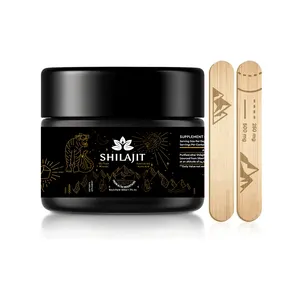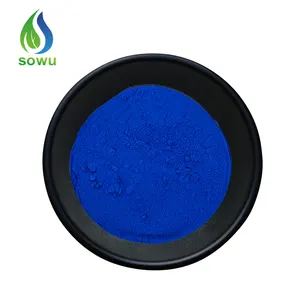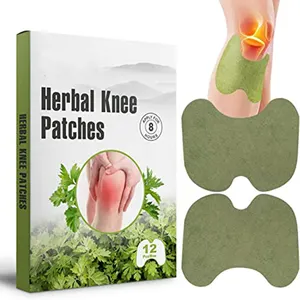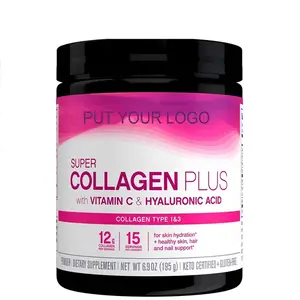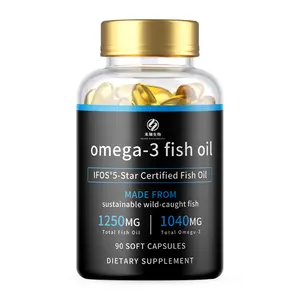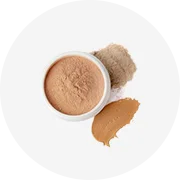आपके उद्योग में लोकप्रिय






304 स्टेनलेस स्टील पंचिंग प्लेट गोल आकार छेद छिद्रित धातु शीट छिद्रित धातु शीट
₹65.46 - ₹1,241.05
न्यूनतम ऑर्डर: 1 वर्ग मीटर







फैक्टरी मूल्य स्टेनलेस स्टील पीतल सजावटी सजावटी छिद्रित प्लेट धातु स्क्रीन शीट पैनल मेष रोल
₹2,465.09 - ₹4,250.15
न्यूनतम ऑर्डर: 10 वर्ग मीटर







सबसे अच्छा कस्टम स्टेनलेस स्टील एल्यूमीनियम विस्तारित धातु जाल सुरक्षा बाड़ शीट
₹40.81 - ₹144.51
न्यूनतम ऑर्डर: 1 वर्ग मीटर







सबसे अच्छी कीमत 304 छिद्रित स्टेनलेस स्टील शीट के लिए सजावट गहने बनाने
₹6,800.24 - ₹7,225.26
न्यूनतम ऑर्डर: 10 नग






सबसे अच्छी कीमत 1.4112 0.6Mm 1.2Mm स्टेनलेस स्टील शीट की कीमत
₹38,251.35 - ₹51,001.80
न्यूनतम ऑर्डर: 1 टन






इमारत के लिए 3 मिमी 3.5 मिमी 4 मिमी मोटी स्टील धातु शीट 201 एआईएसआई 304 904 एल नंबर 1 हॉट रोल्ड स्टेनलेस स्टील प्लेट
₹93,503.30 - ₹1,27,504.50
न्यूनतम ऑर्डर: 1 टन






सबसे अच्छी कीमत 317l 0.5 मिमी 0.7 मिमी 2 मिमी 304 304l दर्पण हेयरलाइन स्टेनलेस स्टील आईनॉक्स छिद्रित शीट खरीदें
₹1,04,978.71 - ₹1,16,029.10
न्यूनतम ऑर्डर: 5 टन






सबसे अच्छी कीमत sus 304 स्टेनलेस स्टील प्लेट कीमत प्रति किलोग्राम स्टेनलेस स्टील मोटी प्लेट 2 मिमी स्टेनलेस स्टील प्लेट शीट
₹1,02,003.60 - ₹1,53,005.40
न्यूनतम ऑर्डर: 1 टन






सबसे अच्छा मूल्य सजावटी एशी एस्एस 304l 310s 202 321 316 410 316l 201 430 316l 304 स्टेनलेस स्टील छिद्रित धातु शीट
₹1,18,919.20 - ₹1,35,919.80
न्यूनतम ऑर्डर: 1 टन






प्राइम क्वालिट स्टेनलेस स्टील शीट 304 #4फिनिश 202 304 316 430 गोल्डन स्टेनलेस स्टील शीट सर्वोत्तम मूल्य के साथ
₹1,02,003.60
न्यूनतम ऑर्डर: 1 टन
संबंधित खोजें:
स्टैगर्ड छिद्रित शीट निर्माताकाले छिद्रित शीट आपूर्तिकर्ताएल्यूमीनियम 3003 छिद्रित शीटपैटर्न छिद्रित शीटविरोधी स्किड छिद्रित शीट4x8 स्टील छिद्रित शीटछिद्रित शीट सबसे अच्छी कीमतकम मूल्य छिद्रित शीट304l छिद्रित शीट निर्माताए 36 स्टील छिद्रित शीटस्टील छिद्रित शीटस्टैगर्ड छिद्रित शीट निर्माताएमएस छिद्रित शीटमानक छिद्रित शीटछिद्रित शीट






किचन प्लेट के लिए गोल्ड मिरर स्टेनलेस स्टील एएसटीएम सस 304 स्टेनलेस स्टील फोशान मिल एज स्लिट एज कोल्ड रोल्ड हॉट रोल्ड बीए
₹7,225.26 - ₹7,480.27
न्यूनतम ऑर्डर: 30 नग






उभरा गोल्डन पानी लहर लहर सजावटी स्टेनलेस स्टील शीट दर्पण 302 304 304l पानी नालीदार स्टेनलेस स्टील प्लेट
₹1,64,055.79 - ₹1,68,815.96
न्यूनतम ऑर्डर: 5 टन






शीर्ष गुणवत्ता 304 स्टेनलेस स्टील ट्यूब सबसे अच्छी कीमत पर सतह उज्ज्वल पॉलिश आईनॉक्स 316L स्टेनलेस स्टील पाइप बेचने
₹170.01 - ₹255.01
न्यूनतम ऑर्डर: 1 किलोग्राम






उद्योग के लिए सर्वोत्तम गुणवत्ता और कम कीमत वाली AISI 442 स्टेनलेस स्टील शीट
₹1,02,003.60 - ₹1,53,005.40
न्यूनतम ऑर्डर: 1 टन






स्टम 304 316 316L ग्रेड स्टेनलेस स्टील शीट सबसे अच्छी कीमत
₹1,02,003.60 - ₹1,53,005.40
न्यूनतम ऑर्डर: 1 टन






स्टेनलेस स्टेनलेस स्टील मेष प्लेट गोल छेद/छिद्रित धातु शीट एसयूएस 210 316 420 430 304 छिद्रित धातु प्लेटें
₹841.53 - ₹1,275.05
न्यूनतम ऑर्डर: 1 वर्ग मीटर






सबसे अच्छी कीमत 1.4301 0x18h10 1.2 मिमी मानक आकार 4x8 304 304l 310s 410 420 409l स्टेनलेस स्टील 2b शीट
₹1,02,003.60 - ₹1,53,005.40
न्यूनतम ऑर्डर: 1 टन






प्राइम क्वालिटी 200 300 400 सीरीज स्टेनलेस स्टील हॉट रोल्ड स्ट्रक्चरल प्लेट 304 अनुकूलित स्टेनलेस स्टील प्लेट सर्वोत्तम मूल्य
₹1,02,003.60 - ₹1,27,504.50
न्यूनतम ऑर्डर: 1 टन






सर्वोत्तम मूल्य ऐसी एसिस एस 304l 310s 202 321 316 410 430 316l 201 304 स्टेनलेस स्टील शीट/प्लेट
₹1,02,003.60 - ₹1,53,005.40
न्यूनतम ऑर्डर: 1 टन






सबसे अच्छी कीमत कोल्ड रोल्ड एसएस शीट 0.3 मिमी मोटी 304 स्टेनलेस स्टील प्लेट कीमत
₹1,02,003.60
न्यूनतम ऑर्डर: 1 टन






सबसे अच्छा गुणवत्ता वाले छोटे गोल छेद स्टेनलेस स्टील 304 कम कीमत के साथ छिद्रित धातु शीट छिद्रित शीट
₹1,317.55
न्यूनतम ऑर्डर: 100 नग






सबसे अच्छी कीमत सजावटी जस्ती स्टेनलेस स्टील एल्यूमीनियम छिद्रित धातु शीट
₹263.51 - ₹442.02
न्यूनतम ऑर्डर: 10 वर्ग मीटर






सबसे अच्छा गुणवत्ता वाले छोटे गोल छेद स्टेनलेस स्टील 304 कम कीमत के साथ छिद्रित धातु शीट
₹3,047.36 - ₹3,098.36
न्यूनतम ऑर्डर: 80 मीटर






सस्ती कार्बन स्टील प्लेट कॉर्टेन स्टील छिद्रित शीट मौसम प्रतिरोधी स्टील शीट क्यू 235nh q355nh Q355nh.
₹46,751.65 - ₹55,251.95
न्यूनतम ऑर्डर: 10 टन






बिक्री के लिए छिद्रित स्टेनलेस स्टील प्लेट 202 904l 321 सर्वोत्तम मूल्य 317l स्टेनलेस स्टील शीट
₹83,302.94 - ₹1,57,255.55
न्यूनतम ऑर्डर: 1 टन






2024 फैक्टरी सर्वोत्तम मूल्य कस्टम स्टेनलेस स्टील गैल्वेनाइज्ड धातु जाल पैनल प्लेट रोल बाड़ हेक्सागोनल छिद्रित धातु शीट
₹85.01 - ₹510.02
न्यूनतम ऑर्डर: 1000 वर्ग मीटर






सबसे अच्छी कीमत जस्ती स्टेनलेस स्टील छिद्रित धातु के तार जाल शीट
₹1,530.06 - ₹1,700.06
न्यूनतम ऑर्डर: 10 नग






सबसे अच्छी गुणवत्ता वाले छोटे गोल छेद स्टेनलेस स्टील 304 कम मूल्य छिद्रित शीट के साथ छिद्रित धातु शीट
₹253.31 - ₹1,156.05
न्यूनतम ऑर्डर: 1 इकाई






उच्च शक्ति खनन रेत स्क्रीन जाल पहनने के लिए प्रतिरोधी वाइब्रेटर स्क्रीन जाल छिद्रित स्टेनलेस स्टील शीट सबसे अच्छी कीमत के साथ
₹416.52 - ₹841.53
न्यूनतम ऑर्डर: 200 वर्ग मीटर






सबसे अच्छी कीमत अनुकूलित छेद छिद्रित धातु छिद्रित स्टेनलेस स्टील शीट छिद्रित धातु शीट
₹1,244.45 - ₹1,326.90
न्यूनतम ऑर्डर: 100 नग






सर्वोत्तम गुणवत्ता 2 मिमी 316 स्टेनलेस स्टील शीट कम कीमत स्टेनलेस स्टील छिद्रित शीट 304 कीमत 100% एल/सी
₹76,502.70 - ₹83,302.94
न्यूनतम ऑर्डर: 28 टन






सबसे अच्छी कीमत लोकप्रिय उच्च गुणवत्ता वाली एसएस प्लेट 201 316एल 904एल 310एस एसएस 304 प्लेट छत छिद्रित स्टील शीट
₹467.52 - ₹722.53
न्यूनतम ऑर्डर: 1 नग






समुद्री स्टील के लिए फ्लैट मेटल शीट हॉट रोल्ड शीट ss201 304L 316 स्टेनलेस स्टील प्लेट 4 मिमी 5 मिमी 6 मिमी मोटी
₹97,753.45 - ₹1,14,754.05
न्यूनतम ऑर्डर: 1 टन






चीन फैक्टरी उच्च गुणवत्ता 304 316L आईनॉक्स स्टेनलेस स्टील छिद्रित शीट 2 मिमी मोटी प्लेट स्टॉक मूल्य सूची
₹1,01,153.57 - ₹1,18,919.20
न्यूनतम ऑर्डर: 1 टन






Conidur slotted छेद स्टेनलेस स्टील लचीला पतली छिद्रित धातु शीट (सबसे अच्छी कीमत)
₹493.02 - ₹1,428.06
न्यूनतम ऑर्डर: 10 नग






छिद्रित पंचिंग कॉपर ग्रिल धातु जाल स्क्रीन ग्रिड शीट मूल्य एम 2 पंचिंग छिद्रित धातु शीट
₹340.02 - ₹680.03
न्यूनतम ऑर्डर: 20 वर्ग मीटर
स्टील छिद्रित शीट सबसे अच्छी कीमत के बारे में
Alibaba.com 453 स्टील छिद्रित शीट सबसे अच्छी कीमत उत्पादों की पेशकश करता है.
